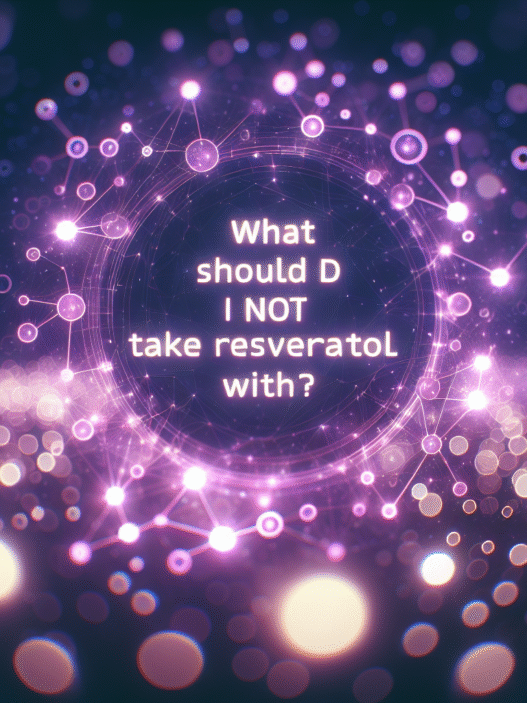Understanding Resveratrol
This section introduces resveratrol, exploring its properties, benefits, and sources, particularly focusing on its impact on skin health.
Properties and Benefits
Resveratrol is a naturally occurring antioxidant found primarily in the skin of grapes, peanuts, berries, and dark chocolate. It belongs to a group of compounds known as polyphenols, which offer significant antioxidant protection to the skin (Byrdie). This powerful antioxidant helps combat oxidative stress, which can lead to premature aging and skin damage.
Some key benefits of resveratrol include:
| Benefit | Description |
|---|---|
| Antioxidant Protection | Shields the skin from free radicals that cause aging. |
| Anti-inflammatory | Reduces inflammation and redness in the skin. |
| Moisture Retention | Enhances skin hydration, leading to improved elasticity. |
| UV Protection | Provides protection against harmful UVA/UVB rays. |
For more detailed information about the various resveratrol benefits, individuals can explore its extensive effects on health and wellness.
Food Sources
Resveratrol can be found in several foods, making it easier to incorporate into one’s diet. Here are some common sources:
| Food Source | Resveratrol Content (micrograms/g) |
|---|---|
| Red Wine | Average 1.9 ± 1.7 mg/L |
| Peanuts | Approximately 25% of that found in red wine |
| Mulberries | Up to 50 micrograms per gram dry weight |
| Dark Chocolate | Varies based on cocoa content |
Most resveratrol supplements in the United States are derived from the root of Reynoutria japonica (Japanese knotweed) (Wikipedia). For those seeking to boost their intake through diet, foods rich in resveratrol are a beneficial addition.
To learn more about specific resveratrol-rich foods, visit our resource on resveratrol foods.
Resveratrol for Skin Health
Resveratrol has gained considerable attention in the realm of skincare for its remarkable benefits. This powerful antioxidant has been shown to promote skin health when applied topically and can also offer protection against environmental damage.
Topical Application Benefits
When resveratrol is applied to the skin, it helps reduce the visible effects of aging. In a 2014 study, it was highlighted that resveratrol can neutralize free radicals, which are known to damage cells and contribute to aging. This compound has been shown to improve fine lines, wrinkles, and skin elasticity effectively.
The following table summarizes some of the specific skin benefits observed with topical resveratrol application:
| Skin Benefit | Description |
|---|---|
| Reduces fine lines | Helps smooth out the appearance of small wrinkles. |
| Improves elasticity | Enhances the skin’s ability to stretch and bounce back. |
| Neutralizes free radicals | Protects skin cells from oxidative stress. |
| Enhances hydration | Supports skin moisture levels, preventing dryness. |
These properties make resveratrol an attractive ingredient in various resveratrol for skin products such as serums and creams, where it can be absorbed directly to maximize its effects.
Protection Against UV Damage
Resveratrol has also shown promise in providing protection against UV damage. This is significant because UV exposure can lead to premature skin aging, increased pigmentation, and the risk of skin cancers. Research indicates that resveratrol demonstrates antioxidant activity by inhibiting harmful cellular processes, which enables it to help slow down aging processes.
The ability of resveratrol to reduce the harmful effects of UV radiation further emphasizes its potential in skincare routines aimed at combating sun damage. Individuals interested in maximizing the benefits of resveratrol may want to consider its incorporation into their daily regimen, especially if they frequently expose their skin to sunlight.
For more information on the overall resveratrol benefits you can explore its effects on various aspects of health and wellness.
Resveratrol and Aging
Anti-Aging Effects
Resveratrol is increasingly recognized for its potential to slow down the aging process, particularly in the skin. Its antioxidant properties play a vital role in this regard, as they help combat oxidative stress and reduce the formation of free radicals. Studies have demonstrated that resveratrol delays age-related deterioration by mimicking dietary restriction’s transcriptional aspects, without necessarily extending lifespan (Cell Metabolism).
The mechanisms behind its anti-aging effects include the inhibition of various crucial processes within skin cells. For instance, resveratrol significantly reduces levels of Bcl-2 phosphorylation, cell adhesion kinase, and hydroperoxides, all of which contribute to the aging of skin cells. This inhibition helps maintain skin elasticity and reduces the appearance of wrinkles and fine lines, making it a popular ingredient in anti-aging skincare products []
| Anti-Aging Mechanism | Effect |
|---|---|
| Inhibition of Bcl-2 Phosphorylation | Slows down skin aging processes |
| Reduction of Hydroperoxide Levels | Minimizes oxidative damage |
| Decrease in Cell Adhesion Kinase | Enhances elasticity and firmness |
For more information on how resveratrol can enhance your skincare routine, explore resveratrol for skin.
Role in Wound Healing
Resveratrol has also been shown to positively influence wound healing. Research indicates that it enhances skin regeneration by interacting with specific cellular pathways. This interaction helps protect the skin from the harmful effects of UV radiation, boosts collagen synthesis, and accelerates the skin’s healing response after injury (NCBI).
In various studies, resveratrol has been associated with increased angiogenesis, which is the formation of new blood vessels that are critical for effective wound healing. Additionally, it provides faster wound closure rates and reduces scar formation, making resveratrol an intriguing compound for those looking to improve their skin’s resilience as they age.
| Wound Healing Effect | Result |
|---|---|
| Increased Angiogenesis | Supports blood flow to injured areas |
| Faster Wound Closure | Reduces healing time |
| Decreased Scar Size | Minimizes visible scarring |
For further insights into its benefits and uses, check out the pages on resveratrol benefits and resveratrol supplements.
Resveratrol’s skin benefits, particularly in the context of aging and wound healing, make it a valuable addition to any skincare regimen aimed at promoting longevity and skin health.
Effective Use of Resveratrol
Understanding how to effectively utilize resveratrol can maximize its skin benefits. This involves comparing topical versus oral use, as well as considering compatibility and recommendations for usage.
Topical vs. Oral
Resveratrol is found in various forms, including dietary supplements and skincare products. However, it is more effective for skin health when applied topically rather than ingested. High amounts would be required through ingestion to achieve similar benefits. As a result, incorporating resveratrol into skincare products is a more efficient approach to enhancing skin health.
When using resveratrol topically, it is best to apply it at night due to its light-sensitive properties. The order of application in a skincare routine should depend on the type of product used, whether it is a heavier night cream or a lightweight serum.
| Form of Resveratrol | Benefits | Recommendations |
|---|---|---|
| Topical | Directly targets skin, more effective than ingestion | Apply at night, incorporate into skincare routine |
| Oral (supplements) | General health benefits, less effective for skin | Consult healthcare provider for dosage |
Compatibility and Recommendations
Resveratrol is generally safe for all skin types and works well with most skincare ingredients. It can be used alongside active ingredients such as AHAs and BHAs, as well as other antioxidants, like vitamin C, to boost effectiveness. However, caution is advised when using resveratrol with blood thinners such as Coumadin, aspirin, and ibuprofen, as it may interfere with their effects. Consultation with a healthcare practitioner is advised before starting any resveratrol supplements.
When incorporating resveratrol into a daily skincare routine—especially for resveratrol for skin benefits—it is essential to monitor how skin reacts and adjust the routine as necessary to avoid any adverse effects. For those new to resveratrol, starting with a low concentration and increasing gradually may help in determining individual tolerance.
Resveratrol Research Findings
Scientific Studies
Recent research has established multiple benefits of resveratrol, particularly in relation to skin health and anti-aging properties. Several studies demonstrated its effectiveness in various areas:
- Cytostatic and Antiestrogenic Properties: Resveratrol exhibits these properties when applied to human endometrial adenocarcinoma cells, showing its potential role in cancer prevention (Anticancer Research).
- Oxidative Stress Reduction: It inhibits copper-dependent hydroxyl-radical formation and DNA damage, indicating its ability to scavenge harmful hydroxyl radicals and protect cellular integrity (Archives of Biochemistry and Biophysics).
- Protection Against Diabetic Nephropathy: The impact of resveratrol on oxidative stress was noted to improve kidney health, highlighting its protective role in diabetic conditions (Diabetes).
- Wound Healing and Photoaging: Resveratrol positively influences skin regeneration, collagen synthesis, and offers protection against harmful UV radiation. It aids in reducing photoaging effects while promoting skin healing (NCBI).
- Skin Aging Inhibition: It reduces skin edema and inflammatory processes, modifies concentrations of inflammatory cytokines, and affects aging biomarkers. These mechanisms contribute to its effectiveness in slowing skin aging (NCBI).
Implications in Dermatology
The findings from these studies have significant implications for dermatology, especially related to the use of resveratrol in topical solutions and supplements. Resveratrol not only serves as a powerful antioxidant but also as a potential agent for promoting skin health and longevity.
| Benefit | Details |
|---|---|
| Wound Healing | Enhances collagen synthesis and accelerates the regeneration process. |
| UV Protection | Offers protective measures against type B ultraviolet radiation. |
| Anti-Inflammatory | Reduces inflammatory cytokines and oxidative damage to the skin. |
| Aging Biomarkers | Alters age-related markers, potentially slowing the aging process. |
Resveratrol’s versatility makes it suitable for incorporation in a variety of dermatological products, including resveratrol for skin creams and serums. For those interested, exploring the various resveratrol supplements available may also enhance overall skin and health benefits. As continuing research reveals more about its multifaceted roles, resveratrol remains a key focus in the pursuit of effective anti-aging solutions.





















